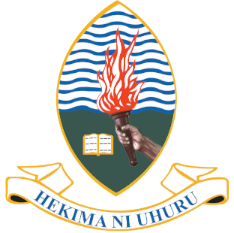MSc Communications and Network Engineering
Objectives and contents
The overall objective of the MSc programme in Communications and Network Engineering (MSc in CNE) is to produce quality Communications and Network Engineering specialists of intellectual standard and high calibre who can manage and operate communications and networking systems. The programme aims to meet current and future needs in the field of Communications and Network Engineering, both in Tanzania and internationally. Specifically, the programmes is intended to meet the following objectives:
- To provide students with the theoretical background and applied knowledge that they need to practise as communications and network engineers.
- To enable students to develop the technological and competitive skills needed in the design and engineering of modern communications systems and networks.
- To ensure students acquire the ability to integrate telecommunications and networking technologies and engineering systems using their generalist and broader knowledge in multidisciplinary contexts.
- To ensure students acquire the ability to innovate, develop, direct, coordinate and technically manage projects in the fields of communications and networks.
- To provide a gateway to doctoral studies in communications and networks engineering.
Expected learning outcomes
Upon the completion of the MSc programme in Communications and Network Engineering (MSc in CNE) graduates should be able to:
- Gain a comprehensive understanding of the scientific principles and awareness of the most recent technologies, tools and applications in the communication and network engineering field.
- Gain the ability to use fundamental knowledge to investigate new and emerging technologies.
- Gain an understanding of the concepts from a range of areas including technical and management skills and the ability to apply them effectively in engineering projects.
- Gain comprehensive knowledge and understanding of mathematical and computer models in the telecommunication discipline and an appreciation of their limitations.
- Gain ability to apply mathematical and computer-based models for solving problems in telecommunication engineering, and ability to assess the limitations of particular cases.
- Have a wide knowledge and comprehensive understanding of design processes and methodologies and the ability to apply and adapt them in unfamiliar situations.
- Have the ability to generate innovative designs for products, systems, components and processes to fulfil new needs.
- Have the ability to apply engineering techniques taking into account a range of commercial and industrial constraints.
- Make audio/visual/written presentations to convey a body of technical information in a coordinated and comprehensive manner.
- Demonstrate qualities of a professional team member specifically in the areas of interpersonal skills, scheduling, working within deadlines and budget restrictions.
Career prospects
- Experts in communications and network engineering
- Researchers in communication and network engineering
Entry Requirements
Direct Entry Qualification
UQF level 8 with at least a second class degree in Electronics, Telecommunications, Networking programme in graduate studies from an institution recognized by TCU.
Equivalent Entry Qualification
A Postgraduate Diploma in relevant field (same or similar discipline) from an institution recognized by TCU with at least an upper second class award. Candidates with equivalent qualifications must also possess at least secondary school certificates with principal passes in Physics and mathematics.
Fee Structure
For Tanzanian students, the school fee for this programme is TZS 6,412,500/= for 24 months (2 years) by coursework and dissertation and TZS 4,200,000 by thesis. For international students, the fee is USD 8,040 for 24 months (2 years) both by thesis and coursework and dissertation. The fee can be paid in 2 instalments annually or in 4 instalments (per semester).
The University may change school fees in each new academic year. Therefore, for accurate/ updated information about fees and other related direct costs paid to the University please visit the webpage on the fees structure for postgraduate programmes under CoICT. See the Registration Process page HERE and UDSM Postgraduate Fees Structure for the 2021/2022 academic year.
For more information about this programme please contact the ETE Department by email through ete@udsm.ac.tz or Telephone +255(0) 222771011. Otherwise, you are welcome to visit us to learn more about this programme at CoICT Kijitonyama Campus along the Ali Hassan Mwinyi Road, Block B Room 012. We are open Monday to Friday from 08:00 am to 04:00 pm, except weekends and public holidays.
